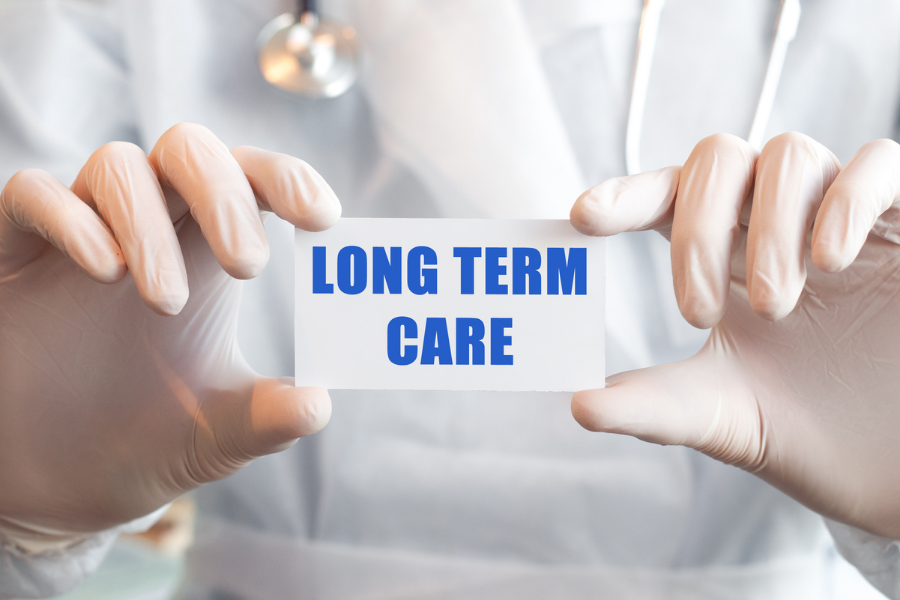Seniors and people with disabilities requiring long-term services and supports (LTSS) rely on Medicaid to help cover their healthcare needs, including home- and community-based services (HCBS). As the need for LTSS services among these demographics increases, states must consider how to determine Medicaid eligibility, with many states relying on HCBS enrollment caps and waiting lists to curb spending. In this article, we share highlights from a new report published by Kaiser Family Foundation examining important differences among states’ Medicaid LTSS policies for expansion that moves beyond waiver waiting lists.
Background For Analysis
The report focused on data collected up through 2018, at which time 41 states had an HCBS waiver wait list. Research analyzing ACA Medicaid expansion indicated that states using ACA expansion as a Medicaid eligibility pathway were able to increase coverage for people with disabilities. However, of those included on HCBS waiver wait lists across the country, approximately 820,000 people were in a non-expansion state.
The purpose of KFF’s analysis was to examine choices available to states looking for Medicaid eligibility pathways, services, and spending options for seniors and people with disabilities requiring LTSS that don’t rely on HCBS waiver waiting lists. Researchers also focused on differences among states, because variations in Medicaid eligibility, services and spending could impact upcoming policy debates on expanding HCBS.
Key Findings
KFF’s researchers identified three key types of variation among states’ Medicaid LTSS policies for seniors and people with disabilities: 1) eligibility and enrollment; 2) spending and policies designed to decrease institutional bias; and 3) covered services. Findings for each are summarized below.
Eligibility And Enrollment
Researchers considered pathways, financial criteria, income and renewal. They found:
“Some state policy choices related to Medicaid eligibility and enrollment for seniors and people with disabilities vary by states’ ACA expansion status, most notably with regard to optional coverage pathways.”
Comparing expansion states to non-expansion states, the researchers determined expansion states were more likely to:
- Offer coverage through two optional pathways: medically needy and buy-in for working people with disabilities;
- Remove the asset limit when using the buy-in for working people with disabilities; and
- Expand financial eligibility to a broader range of HCBS waiver populations, while using a higher average monthly personal needs allowance.
Spending And Policies Designed To Decrease Institutional Bias
Researchers examined spending on LTSS, federal grant programs for HCBS, waiver waiting lists, and cost caps/geographic limits on HCBS waiver services. They found:
- Almost half of the existing expansion states spend 56% of their LTSS funding on HCBS (non-expansion states in contrast only spend less than 33.3%);
- Expansion states were more likely to participate in the Balancing Incentive Program under the ACA; and
- Individuals in expansion states had a longer average waiting period for waiver services.
Covered Services
Researchers focused on optional state plan HCBS benefits, HCBS waiver services, and self-direction policies. They found:
- There is considerable variation in how states utilize optional state plan HCBS;
- HCBS waiver benefit packages differ significantly based on target population; and
- A self-directed state plan or HCBS waiver is offered in nearly every state.
Next Steps
When considering how best to advocate for Medicaid expansion of HCBS services, the KFF emphasizes the following:
- A state’s ACA expansion status should not be taken as a predictor of its policy choices for seniors and people with disabilities.
- Understanding existing differences among state Medicaid eligibility, services and spending can help guide future policy discussions on expanding access and funding for HCBS through new legislation, including establishing HCBS as a mandatory Medicaid benefit.
- States will likely require financial support at the federal level to help offset budget shortfalls brought on by the COVID-19 pandemic in order to maintain LTSS.
- Support from the new administration will remain vital during the ongoing public health emergency to maintain and expand LTSS for seniors and people with disabilities.
To access the full report, click here.

